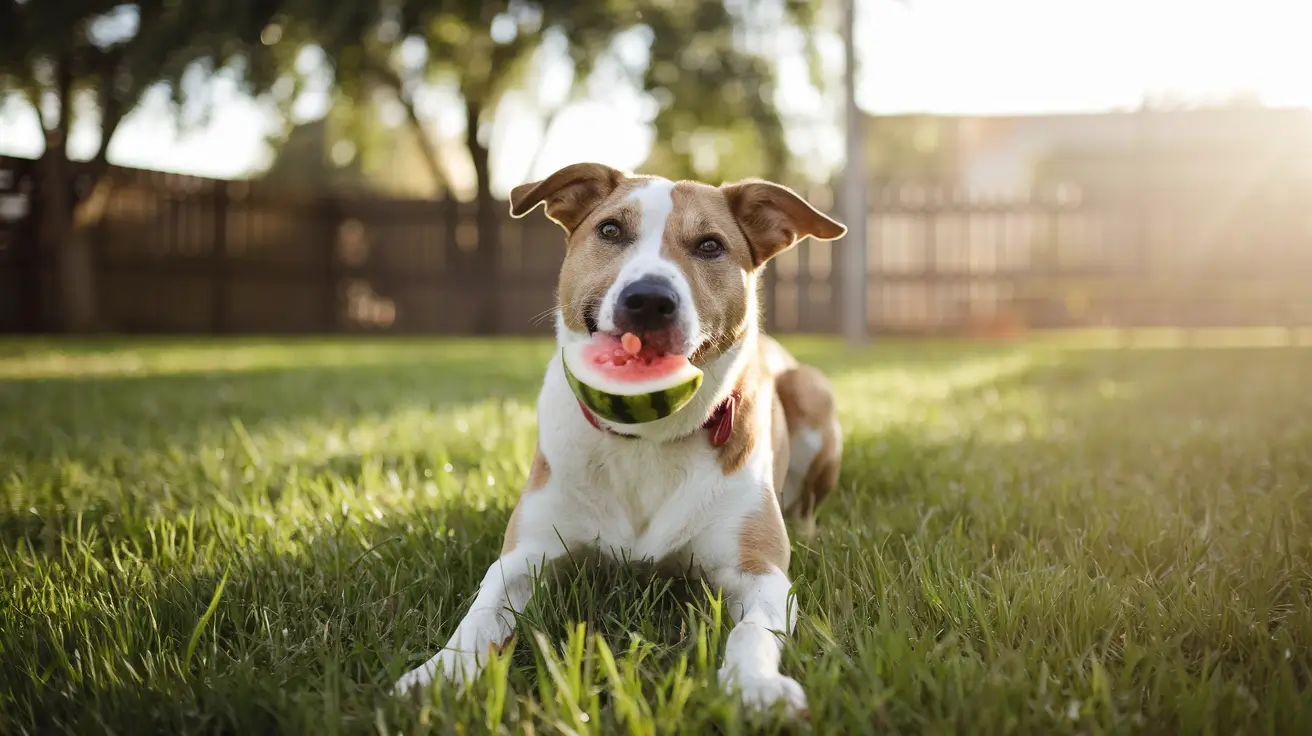Introduction: Watermelon for Dogs
Watermelon is a popular summertime treat for humans, known for its refreshing taste and hydrating properties. But what about our canine companions? Can dogs safely enjoy watermelon as well? This article delves into the question, exploring whether watermelon can be a safe and healthy treat for dogs. By examining both the benefits and potential risks, we aim to provide a comprehensive guide for dog owners considering adding this fruit to their pet's diet.
Health Benefits of Watermelon for Dogs
Watermelon is not only a delicious treat but also packed with nutritional benefits that can be advantageous for dogs. It is rich in essential vitamins and minerals, including Vitamin A, Vitamin B-6, Vitamin C, and Potassium. Vitamin A supports healthy vision, skin, and coat in dogs. Vitamin B-6 is crucial for glucose generation, red blood cell function, nervous system health, and hormone regulation. Vitamin C acts as an antioxidant, boosting the immune system and combating inflammation and aging. Potassium is vital for proper muscle and nerve function and contributes to heart health and fluid balance in the body. Given these benefits, watermelon can be a nutritious addition to a dog's diet when offered in moderation.
Potential Risks and Precautions
While watermelon can be a healthy treat, there are potential risks that dog owners should consider. Dogs with diabetes, sugar sensitivities, or obesity should avoid watermelon due to its natural sugar content. Although watermelon is low in calories and contains no fat or cholesterol, its sugar content can exacerbate these conditions. Therefore, it is crucial to assess your dog's health status before introducing watermelon into their diet.
Safe Consumption Practices
To ensure that watermelon is a safe treat for dogs, it is important to prepare it properly. Always remove the rind and seeds before offering watermelon to your dog. The rind can pose a choking hazard or lead to intestinal blockages, while the seeds, although unlikely to be consumed in harmful quantities, contain cyanide and can also be a choking hazard. Even seedless watermelons may have small, white seeds that could upset your dog's stomach, so it's best to remove them as well.
Portion Sizes Based on Dog Size
When feeding watermelon to your dog, portion control is essential. Watermelon should only make up about 10% of your dog's overall diet, with the rest coming from a well-balanced dog food diet. Here are some general guidelines for watermelon treat sizes based on your dog's weight:
- Extra-small dogs (2-20 lbs.): 1-2 slices
- Small dogs (21-30 lbs.): 2-3 slices
- Medium dogs (31-50 lbs.): 5-6 slices
- Large dogs (51-90 lbs.): a handful of slices
- Extra-large dogs (91+ lbs.): a large handful of slices
Identifying Signs of Overconsumption
Overconsumption of watermelon can lead to digestive issues in dogs. If your dog eats too much watermelon, watch for symptoms of an upset stomach, such as decreased appetite, fatigue, depression, discomfort, or frequent licking of lips or objects. More severe symptoms include vomiting, excessive diarrhea, blood in vomit or stool, weakness, and collapse. If you notice any of these signs, contact your veterinarian immediately.
Creative Ways to Serve Watermelon
There are numerous fun and safe ways to incorporate watermelon into your dog's diet. You can cut it into small pieces as treats, mash or blend it and pour it over your dog's food, or freeze it in a toy for a refreshing treat. Additionally, you can make a fruit smoothie by blending watermelon with other dog-safe fruits like bananas, strawberries, and blueberries, mixed with plain, sugar-free yogurt. For a special treat, try making dog-safe watermelon sorbet or a watermelon mocktail using blended watermelon and yogurt, frozen into ice cube trays.
Conclusion: Moderation and Monitoring
In conclusion, watermelon can be a healthy and enjoyable treat for dogs when given in moderation and prepared safely. By removing the rind and seeds, controlling portion sizes, and monitoring for any adverse reactions, dog owners can safely incorporate watermelon into their pet's diet. Always keep an eye on your dog's health and consult with a veterinarian if you have concerns. With these precautions in mind, you can share the joy of watermelon with your furry friend, ensuring they stay happy and hydrated.






